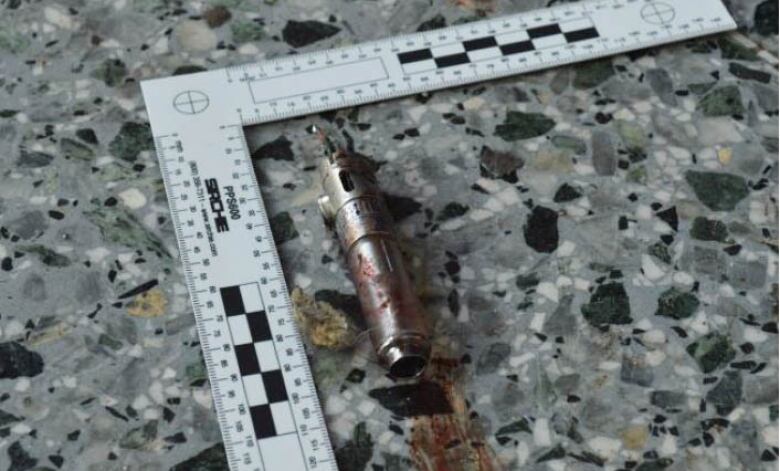Directed or inspired: What is ISIS's role in the Manchester attack and others like it?
The brother of Salman Abedi, the suicide bomber, claimed they both belonged to the extremist group

The deadly Manchester suicide bombingand its possible connection to ISIS raises questionsabout the group'sdirect or indirect rolein thisattack, as well as others made against Western targets.
The Islamic State in Syria and Iraq is somewhat particularin its claims of responsibility for attacks. Itnever, for example, took creditfor the attack in Stockholm this year, when the driver of a truck plowed into a crowd, killing five.
Nor did ISIS take credit for the New York and New Jersey bombings in September 2016. Yet that same weekend, they took responsibility after a man stabbed nine people in a Minnesota mall.
"They don't claim everything,even those attacks that seem to have a level of inspiration from them," said counterterrorism expert ThomasJoscelyn, who is also senior editor of the Long War Journal.
- Trump vows crackdown over leaked Manchester details
- Manchester tattoo parlours buzzing as people commemorate attack with ink
But shortly after this week's suicide blast that killed 22 peopleatthe arena whereArianaGrande had just performed, ISISreleased a statement claiming responsibility.
"One of the soldiers of the caliphate," it claimed,"placed explosive devices in a gathering of crusaders in the middle of the British city of Manchester."
Authorities have made a series of arrests, including the apprehension of thesuicide bomber's brother. Libya's Special Deterrent anti-terror force said in statementthat the brotherclaimed they bothbelonged to ISIS.
While thelevel of ISIS's involvementcontinues to be investigated, CNN reported that the bomber,SalmanAbedi, likely received some Islamic State training by travelling to Syria in the months before the attack.
Part of a network
"It's looking more like, at least, he was part of a network that had connections toISIS in Manchester and Libya," said Alexander Meleagrou-Hitchens, research director of the Program onExtremismat George Washington University.
Abedi is believed to have very recently been in Libya and Syria, returning to Manchester just before the attack.
As well, the level ofsophistication of the bomb itself, described by the New York Times as"an improvised device made with forethought and care" suggests a network of individuals were involved, experts say.
"You just don't build a bomb, fill it with shrapnel, and go and kill 22 people," said Aki Peritz, a former CIA counterterrorism analyst."Somebody needs to show you how to do this."
Abediseems to be adifferent case thansomeonesitting in theirgrandmother's basement, downloading Jihadipropaganda, who is then inspiredto go on a random attack, Joscelyn said.
"Astheevidence continuesto come in, I do suspect we are goingto find a network in the playhere," he said.
In their statement, ISIS referred to the bomber as a "soldier," a description usually reserved for those perpetrators who have been inspired, rather than directed, by the group, Meleagrou-Hitchens said.
OmarMateen, the gunman responsible for killing 49 people at an Orlando, Fla., nightclub last June, hadpledged allegiance to ISIS, telling a 911 operator he was an "Islamic soldier." But no evidence surfaced that the grouphad any role in training or specifically directing his actions.

Yet even if the Manchester bomberwas just inspired by ISIS, he was still a product of a concerted effort of the group to get people to commit these types of acts, Meleagrou-Hitchenssaid.
'Without having a direct hand'
"It is part ofthe ISIS strategy to inspire peopleto commit attacks in its name without having a direct hand," hesaid. "Even though they haven't had a direct hand, they see it as part of their strategy of attacking the West.
"Without their lending legitimacy to this type of activity, these people may not have done this."
Joscelynalsopointed outthere are a number of cases in which people are suspected of just being inspired, "but the story turns out to be much more complicated."
He cited some of the smaller-scaleknife attacks in Europe in 2016. Initially believed to be only inspired by ISIS, "it turned out that those people, in fact, had received guidance online," Joscelyn said.

He referred to these incidents as "remote-controlled" attacks, in which a handler in Iraq or Syria reaches out to a would-be recruit online and "guides them through their day of terror."
"So that's sortof an innovation that ISIS has taken to a whole new level," he said.
There have also been cases of ISIS-directed attacks, which are usually much larger in scope, more co-ordinated and more devastating. Those include the November 2015 attacks in Paris and March 2016 bombingsinBrussels.
The ambiguity around ISIS also makes it difficult to attribute theirlevels of responsibility for attacks, Peritz said.
"What is ISIS anyway? Is it the philosophy of ISIS? Is it the nation-state of ISIS? Or is it this free-flowing anger in cyberspace that is chock full of grievances toward the West?
"Every timesome person commits some atrocity somewhere and claims it's ISIS, is it really ISIS? The answer is we don't know."












_(720p).jpg)


 OFFICIAL HD MUSIC VIDEO.jpg)
.jpg)



























































































